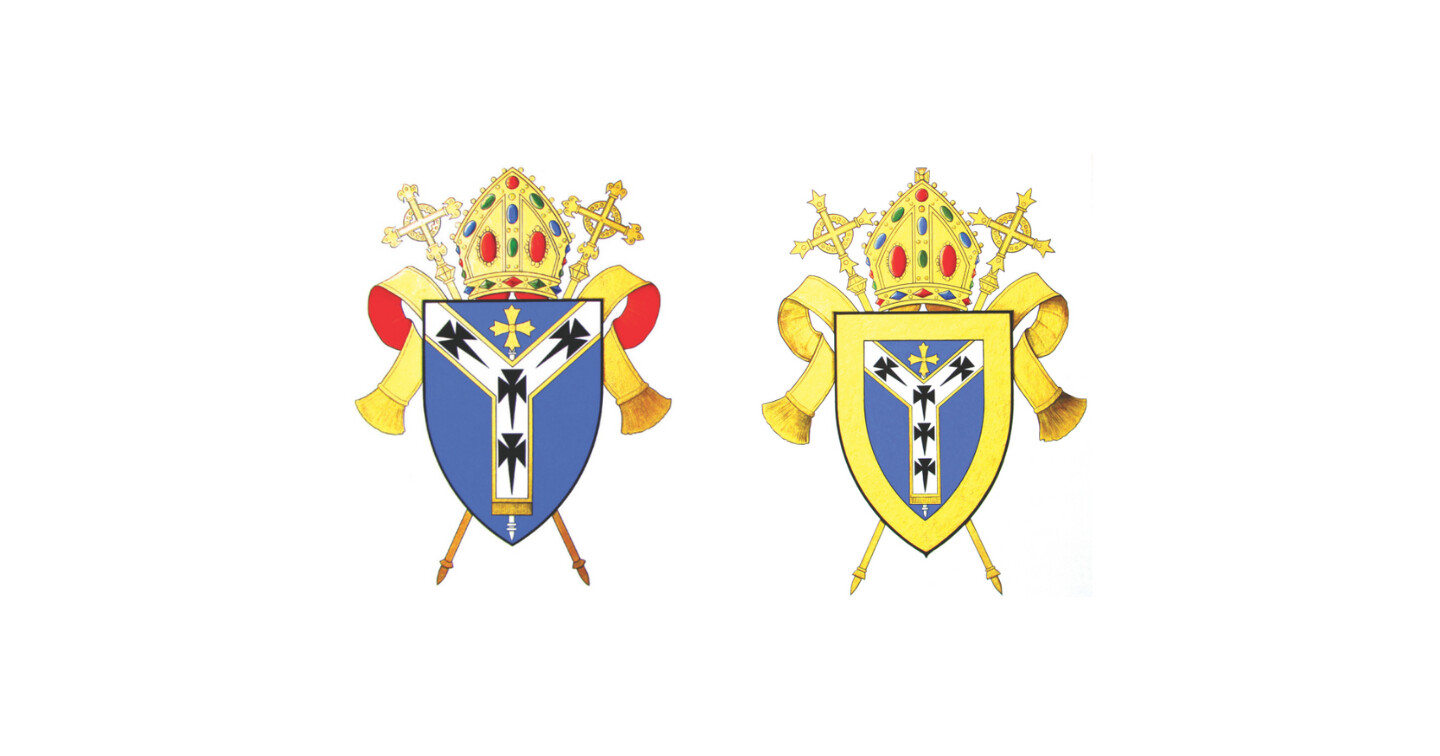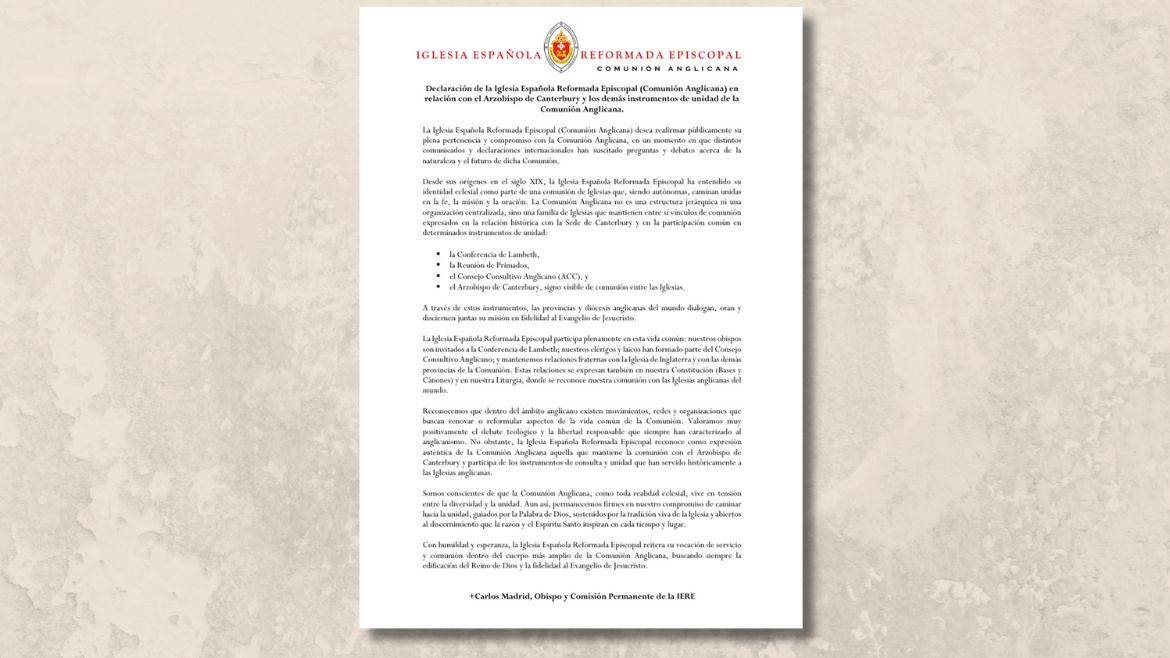The historic Anglican churches in Ireland and Spain say they will not join the Global Anglican Communion. Anglicanism has a limited presence in Europe, with 23 million baptised members.
![El Redentor Anglican cathedral in Madrid, of the IERE. / Photo: [link]IERE[/link].](https://cms.evangelicalfocus.com/upload/imagenes/68fb48e09c04b_catedralredentormadrid940.jpg) El Redentor Anglican cathedral in Madrid, of the IERE. / Photo: [link]IERE[/link].
El Redentor Anglican cathedral in Madrid, of the IERE. / Photo: [link]IERE[/link].
Anglicanism confirmed the announced worldwide schism when last week the churches associated with Gafcon (Global Anglican Future Conference) formalised the definitive break with the Church of England, whose new archbishop, Sarah Mullaly, was meant to continue to hold the role of ‘primus inter pares’, that is, leader of the Anglican Communion.
The churches linked to the “future” of Anglicanism have been denouncing for more than a decade that the Church of England and other Western Anglican institutions have abandoned historical Christian teaching on issues such as marriage and human identity.
By creating a new Global Anglican Communion, the churches leaving communion with Canterbury will seek to recover what they consider to be the biblical theological essence of Anglicanism, in the face of “the revisionist agenda, which has abandoned the inerrant Word of God as the final authority”.
According to estimates, the Anglican churches that are disassociating themselves from the Church of England represent between 50% and 85% of practising Anglicans worldwide. Gafcon is led by countries where Anglicanism is widespread, such as Rwanda, Nigeria, Kenya and Uganda. This evangelical movement also has a strong presence in conservative Anglican movements in the United States, Canada and Mexico, as well as in the Diocese of Sydney (Australia).
Among those embarking on this new journey are also Anglican churches in South America, such as Chile, Argentina, Bolivia and Paraguay.
With this push from Anglicanism in the so-called Global South regions of the world, where the majority of the world's Christians now reside, the Global Anglican Communion promoted by Gafcon is defining itself since October 2025 as the legitimate representative and defender of global Anglican unity. “The reset of our beloved Communion is now uniquely in the hands of GAFCON, and we are ready to take the lead”, said the statement issued a week ago.
.jpg)
[photo_footer] Sarah Mullally, new Archbishop of Canterbury, visiting the Anglican Cathedral in Brussels, Belgium, in 2023. / Photo: Facebook Holy Trinity Brussels [/photo_footer]
Beyond England, Anglicanism has little presence in Europe when compared to other historical Protestant institutions such as the Lutheran or Reformed Churches.
Estimates put the number of baptised Anglicans in Europe at around 23 million, down from 30 million in 1970.
The official Anglican Church in Ireland, the Church of Ireland, with some 220,000 members in Northern Ireland and 120,000 in the Republic of Ireland, is one of the largest Anglican institutions in Europe.

[photo_footer] Church of Ireland. [/photo_footer]
It has announced that it will maintain its ties with Canterbury. On 20 October, it sought to “clarify” its position in a statement, explaining that “from the beginning, the Office of the Archbishop of Canterbury and the convening of the Lambeth Conference were expressions of Anglican unity and identity which, as the Communion grew over time, were supplemented by two further instruments of unity – the Primates' Meeting and the Anglican Consultative Council”.
They explain that they will continue to recognise these instruments of Anglican unity at the global level because they have always “welcomed and accommodated debate and diversity”, so it would not be necessary to leave the Anglican Communion as it has functioned until now.
Also the Spanish Reformed Episcopal Church (IERE), has emphasised in a statement on 22 October that it reaffirms its full adherence to the Anglican Communion, the Lambeth Conference and the Archbishop of Canterbury.

[photo_footer] Statement of IERE, the Anglican Church in Spain, expressing its position / Source: IERE. [/photo_footer]
Some 250 worship places in the European continent are organised under the Church of England Diocese in Europe.
According to their data, most places of worship in France, Italy and the Netherlands. The seat of the bishop of the Diocese of Europe is in Brussels.
But in Europe there are also Anglican movements that for years have distanced themselves theologically from what they consider to be a liberal drift in Anglicanism.
The Anglican Network in Europe (ANiE), recognised by the Gafcon bishops, is an example of how the recent global schism could lead some Anglican parishes in Europe to express their adherence to the Global Anglican Communion.
ANiE defines itself as a “fellowship of Bible-based Anglicans who share the doctrine and values of Christian orthodoxy summarised by the Jerusalem Declaration. We are committed to making Christ known in Scotland, England, Wales and the continent of Europe”.
In a statement on 3 October, they gave a negative assessment of the election of the new Archbishop of Canterbury, saying that “the large majority of the Anglican Communion will not be able to work with Dame Sarah in her new role because of her support for unbiblical and revisionist teachings regarding marriage and sexual morality, and more broadly, the office of the Archbishop of Canterbury’s track record of departure from key aspects of historic Christian doctrine and ethics”.
[analysis]
[title]Join us to make EF sustainable[/title]
[photo][/photo]
[text]At Evangelical Focus, we have a sustainability challenge ahead. We invite you to join those across Europe and beyond who are committed with our mission. Together, we will ensure the continuity of Evangelical Focus and our Spanish partner Protestante Digital in 2025.
Learn all about our #TogetherInThisMission initiative here (English).
[/text][/analysis]

Las opiniones vertidas por nuestros colaboradores se realizan a nivel personal, pudiendo coincidir o no con la postura de la dirección de Protestante Digital.
Si quieres comentar o